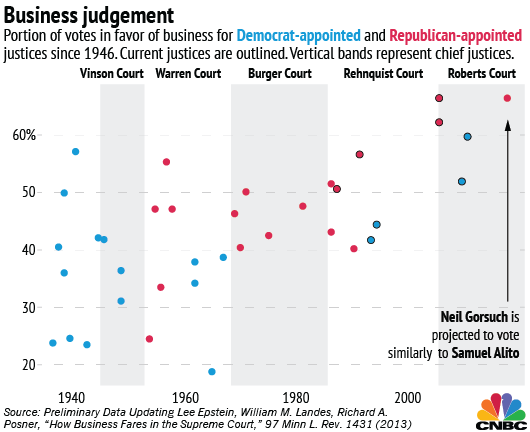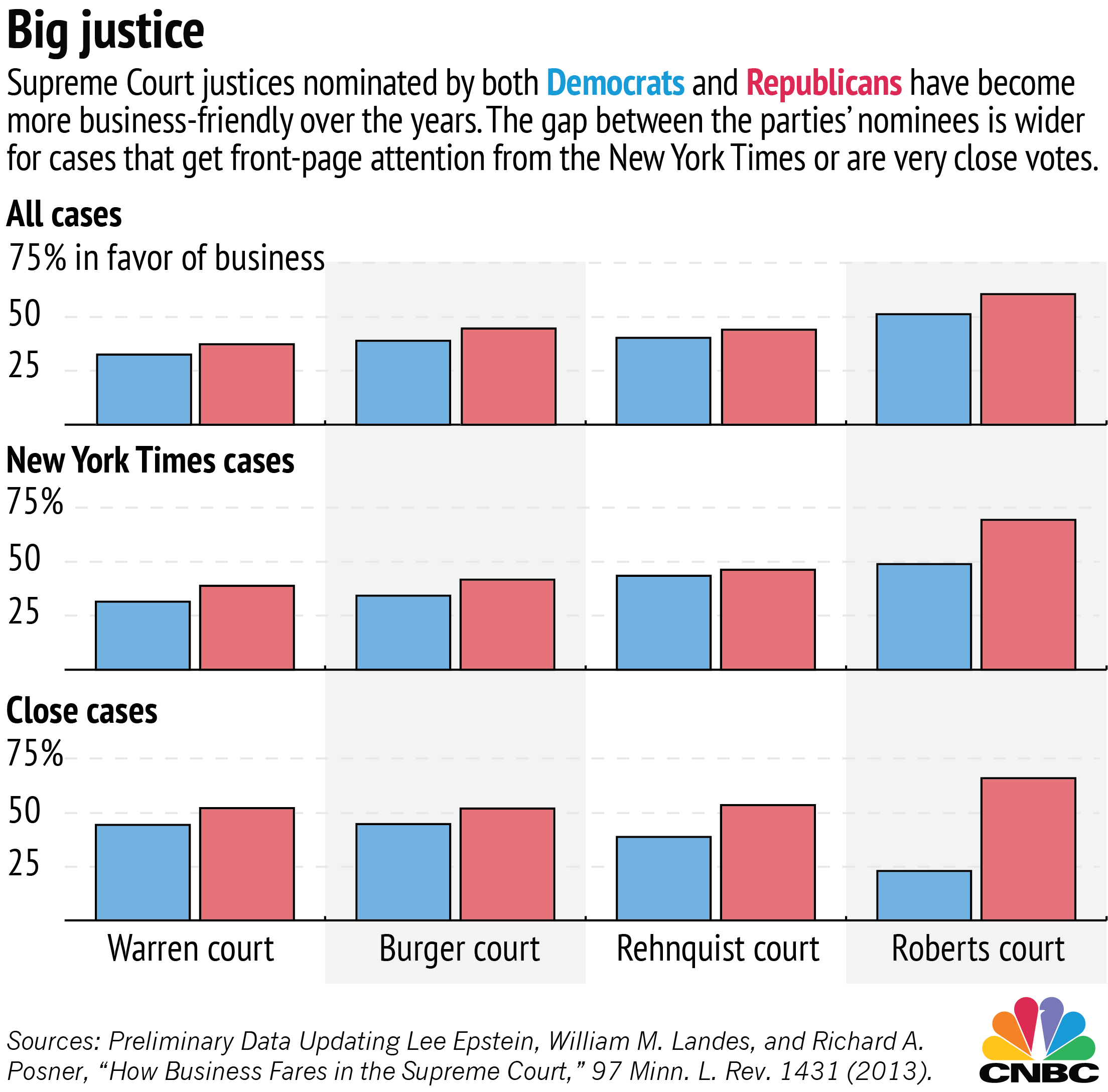The current set of justices in the Supreme Court is more likely to find in favor of businesses than any court since at least WWII, according to a recently updated study. With the addition of Neil Gorsuch, President Trump's pick for the court, businesses are likely to continue their successful bids.
The current court led by Chief Justice John Roberts, a George W. Bush appointee, has decided in favor of business litigants over 60 percent of the time, according to the research. That's a big leap from the 44 percent pro-business cases the court decided when led by Ronald Reagan-appointed William Rehnquist.
But it's not just Republican-appointed justices who are embracing big business: In the Roberts Court, Democrat-appointed justices are more likely to side with businesses too. Not only are they more likely than previous Democratic appointees, but they support business significantly more than many Republican appointees from prior courts.






